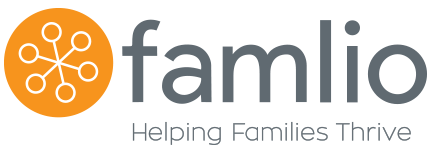Nurturing a new mother – the art of postpartum healing
Caring for a new mother’s body and mind is one of the most important foundations of your parenting journey.
So, you just gave birth. Your body is awash in new hormones and strong feelings. The touch of your newborn’s naked skin feels like an electromagnetic shock: you’re deeply in love, but also slightly anxious, and generally so much more vulnerable than ever before. And just minutes after your placenta is safely on this side of the world, everyone ‘high-fives’ you as if your work was done. “Great job!” “Brave Mumma!”, you hear from the people around you. For the outside world, everything is back on track. Then normal life resumes, its ebbs and flows humming gently in the background as a life-support machine.
But nothing is ever the same after a woman has birthed a child. The meaning of the Latin postpartum is literally ‘bringing forth’. It means that after giving birth, we can never return to that pre-baby state of being. That’s something that our bodies and minds simply need time to adjust to.
In her beautiful book The Fourth Trimester, Kimberly Ann Johnson writes poignantly, “Postpartum is a wonderfully and mystifyingly transformative period in a new mother’s life”. It is also the one that, unfortunately, goes unrecognised as an important part of women’s health care. No wonder almost 80 percent of new mums experience ‘the baby blues’, which can turn into postpartum depression if not addressed.
The fourth trimester is a fragile season for both newborns and mothers, with words like swaddling, swelling, stitches, latching, and over or under-supply, becoming our new narrative. Nobody hands us a map or a guide on how to deal with this new framework: a crying baby, a distraught yet empathetic husband, and a wrecked body.
That’s why since ancient times, after birthing a child a woman had to spend some time convalescing. In her famous book The Red Tent, novelist Anita Diamant mentions a biblical tent the colour of blood. It was a place where women took refuge while menstruating or giving birth, supported by their female tribe of mothers, sisters and aunts. So why exactly has the modern generation of ‘supermums’ abandoned these postnatal practices of healing and adjustment?
In her inspiring book The First Forty Days: The Essential Art of Nourishing the New Mother, the Chinese-American writer Heng Ou offers a gentle guide to the postpartum tradition of zuo yue zi (‘sitting the month’). It is an old Chinese health protocol of diet and lifestyle restrictions practised after birth to restore a woman’s body and mind, and to facilitate her bonding with the new baby. Chinese healers believe that birth is a shift from yang state, in which the pregnant woman’s body is warm, with the high volume of circulating blood, into a yin state – the empty and cold counterbalance to yang. The imbalance between the two makes the new mother susceptible to exhaustion and illness. The main recommendation for this vulnerable period is to nourish the body with warm, nutritious meals, no stress and hassle, and lots of sleep – for at least 40 days. You are not born a mother, you have to learn to become one.
We should take cues from the Eastern traditions. Almost all Asian countries pamper new mothers. Thai women remain at home and are cared for by their husbands and relatives for approximately 30 days after giving birth, a practice known as yu duan. In Korea, postnatal confinement is called samchilil and lasts around 21 days.
In India, jaappa is practised for at least 30 days – the Ayurvedic medicine prescribes that a new mother should receive a warm oil massage, Abhyanga daily, and bathe only in herbal infusions. The Japanese believe that after childbirth the most important thing for the new mother is to spend 30 days on ansei – peace, quiet, and pampering.
“In a society that applies pressure from all sides to be faster and more productive, to bounce back and charge forward, why not bring attention and care to the postpartum period? The transition into motherhood is an incredibly important time of your life, and there is always an opportunity to bring sacredness into the experience of caring for a new baby,” writes Heng Ou.
While all new mothers will have had a different pre-baby journey, and each of us will have their unique path of bonding, healing and becoming a parent, why not let yourself pause and stay put for this new, short-lasting season of your life? This peaceful period can last a full month or just 2 weeks, there’s no one-size-fits-all. Just treat it not as an indulgence but a necessity. Your beautiful, but oh-so-hard parenting journey, has only just begun.
Try these practices for the best of your postpartum recovery
Deep Rest
There is no medicine better than sleep. Many postpartum problems such as heavy bleeding, low milk supply or depression may be prevented by following a ‘sleep when the baby sleeps’ rule. During sleep our brain produces beneficial hormones like melatonin, growth hormone, prolactin, and sex hormones, which allow the body to regenerate. Rest is important, as post-birth your organs are only just returning to their optimal position, hormones are recalibrating and the body comes back to its default blood and fluid volume. So try to nest with your baby in bed – lying down and napping a lot – unapologetically for at least 4-6 weeks.
Support System
Plan ahead. You and your partner should work out the possible network of support: whether it is him/her taking some time off from work, your parents or in-laws visiting for a couple of weeks (if you feel comfortable with that), or maybe you can afford a doula or a food and cleaning service to support you throughout the first few weeks. Forget about “not wanting to ask for help”. Reach to friends and relatives. It is best to start building your village early.
Warmth
Eastern medicine (Chinese and Indian alike) believes that every aspect of your postpartum reality should be warm: your drinks, food, room, massage oil, and bath. Incorporate warm oil massage into your daily routine – this can be a perfect time to strengthen the relationship with your second half! Let him massage your feet, back and legs. According to Ayurveda, a warm oil massage (sesame oil is perfect for this) not only balances stress levels and offers deep relaxation, but it also invigorates the blood’s circulation and helps digestion.
Self-Reflection
Prioritising time to look within is an important aspect of your postpartum care. So many big changes are happening during this time, it is easy to lose yourself in it all! Things like daily meditation, yogic breathing exercises called pranayama, or even writing down how you feel – a self-care tool called journaling – can help to check your emotional temperature and maintain balance.
Freshly cooked food
Eat what you want, but try to focus on nutrient-rich foods and home-made meals, which are best for healing. Think about eating fresh, simple and seasonal products – lots of fruits, veggies, and warm soups. Making a batch of ginger, chamomile or any other breastfeeding-friendly tea in the morning and sipping it from the flask during the day is a simple idea to stay warm and hydrated.
Contact with nature
Staying put doesn’t mean that you cannot enjoy nature! Whether it is a quiet moment on your balcony, in your garden, or a gentle walk to the nearby park to sit on the grass, this can be a perfect moment to reset your mind and enjoy family time with your significant other and a new baby. Just remember not to overstretch yourself. If you decide on babywearing, allow your partner to do the carrying for the first two weeks postpartum.
FURTHER READING
- What No One Tells You: A Guide to Your Emotions from Pregnancy to Motherhood, Alexandra Sacks & Catherine Birndorf
- Nurture: A Modern Guide to Pregnancy, Birth, Early Motherhood—and Trusting Yourself and Your Body, Erica Chidi Cohen
- The First Forty Days: The Essential Art of Nourishing the New Mother, Heng Ou
- The Fourth Trimester, Kimberly Ann Johnson
- Gidget Foundation Australia: a not for profit organisation supporting the emotional wellbeing of expectant and new parents to ensure that those in need receive timely, appropriate and supportive care.


